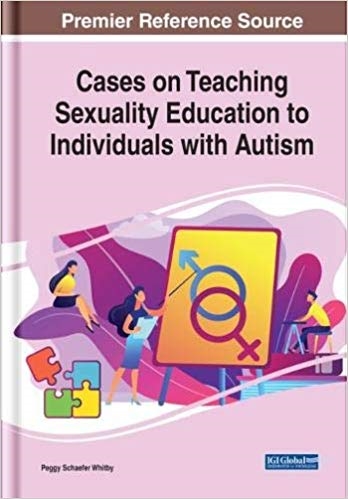For years, University of Arkansas special education professor Peggy Schaefer Whitby has fielded calls from educators and parents asking for advice on how to teach sexuality education to children who have autism.
Schaefer Whitby took those questions, along with her answers, and distilled them into a new book for families, teachers and therapists titled, "Cases on Teaching Sexuality Education to Individuals with Autism."
Schaefer Whitby said there's nothing else like this on the market.
"I wrote this book because I want to help parents understand what to teach, how to teach, and understand the complexity of teaching the broad concept of sexuality education," she said. "Most children with Autism Spectrum Disorder do not receive sexuality education until after they have exhibited some type of problem sexualized behavior. This is of concern as it places the person with autism spectrum disorder at great risk.
"Sexuality education needs to be taught proactively and across the lifespan."
Schaefer Whitby said providing sexuality education to people with autism leads to valuable outcomes that improve their quality of life. The book resource uses real case studies that show teachers, behavior analysts, and others how to address sexuality education and problem behaviors using evidence-based practices. The case studies detail how teachers and therapists make treatment decisions, include family values and cultural beliefs in treatment, and use data to drive treatment decisions.
Book topics include developmental disabilities, psychosexual development and special education.
About the College of Education and Health Professions: The College of Education and Health Professions offers advanced academic degrees as well as professional development opportunities and learning communities in service to the education and health systems of Arkansas and beyond. The college provides the education and experiences for a variety of professional roles, ranging from community mental health counselors to school teachers and leaders. Programs in adult and higher education, along with educational technology and sport management, offer a broad range of options. In addition to education-related opportunities, the college prepares nurses, speech-language pathologists, health educators and administrators, recreation professionals, rehabilitation counselors and human performance researchers.
Topics
Contacts
Shannon Magsam, director of communications
College of Education and Health Professions
479-575-3138,
magsam@uark.edu
